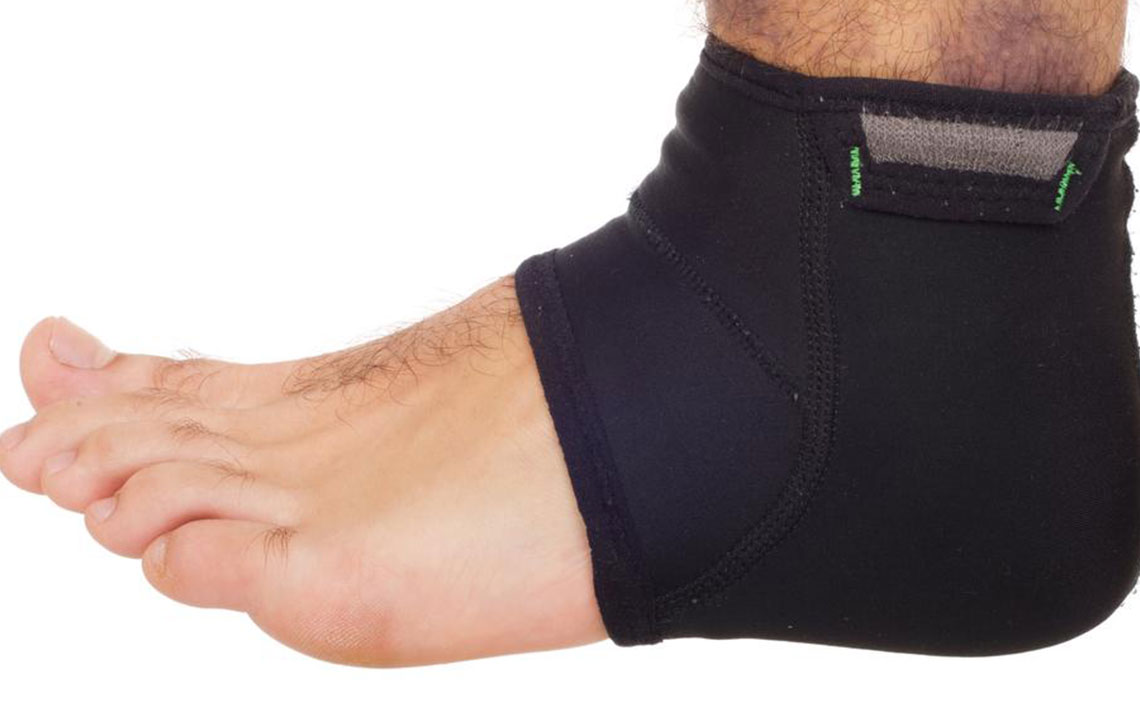7 Swollen Ankle Treatment Options You Should Know

There comes a time in the life of some people when they experience pain in the ankles or feet. Swelling in the ankles is a common condition among women who are pregnant. There is more than one reason that causes swelling in the ankles. Some of those include spending long periods walking or traveling that may hinder any moment of legs restricting blood circulation or surgery.
Swollen ankles is not a serious problem. There are ways to deal with it. Swollen ankles and feet cause discomfort while walking or moving around. Podiatric physicians believe that there are ways to get rid of swelling and prevent the condition from occurring.
The condition of swelling in the body is medically known as edema. It occurs when your body retains fluid in any part of your body. Retention of bodily fluid also occurs in the legs and feet. This causes the ankles to swell. There is no need to panic, as swelling in the ankles is not an emergency situation. The condition should be addressed with patience and care, as it can go away itself with the required care.
Swollen ankle treatment options
Swelling in the body, be in any part, would require attention in order to get relief from it. Following are a few effective, yet popular swollen ankle treatment options that can be considered to get relief from it.
Compression socks
Compression socks can be bought from a nearby pharmacy. Compression socks are a way to get relief from the pain and discomfort and also prevent fluid from collecting into your legs, feet, and ankles. They are found in all kind of weights: light, medium, and heavy. Always make sure that you buy a pair that fits well and is not too much tight. It is often recommended to buy lightweight socks that measure somewhere between 12–15 mm and 15–20 mm of mercury.
Elevating the affected ankle
You can prop your legs up an ottoman to help bring down the swelling. There are many types of yoga poses that are a way to achieve elevation. Keeping your feet elevated can help the bodily fluid escape the affected area thereby relieving you of the pain and the swelling. This is one of the most sort-after swollen ankle treatment options.
Exercise
In addition to yoga or elevation, exercising is one of the most effective swollen ankle treatment. Sitting or standing at a place for long to because strain can increase swelling. It is better to move the affected areas or surrounding body parts. You can also perform exercises like moving your knees, flexing, and extending the ankles, etc. Swimming is also a great alternative as it requires stress on a particular body part, especially the ankle, due to it being a non-weight bearing activity.
Weight loss
Weight loss is a way to decrease the swelling of muscles. Moreover, it also improves one’s overall health and makes them physically strong. It also facilitates well circulation of blood throughout the body. This is one of the extreme options for swollen ankle treatment.
Epsom salt
Epsom salt is a good way to relieve ankle pain that is caused by any swelling. It is recommended to soak your ankles and feet in a cool bath containing Epsom salt for 15 to 20 minutes. If one is a diabetic neuropathy patient, it is advised to first check temperature of the water to avoid exposure to extreme temperatures.
Magnesium supplements
One of the effective swollen ankle treatment options includes the addition of 200 to 400 mg of magnesium to diet on a regular basis can help put a limit to water retention and pain. Therefore, magnesium supplement will act as a boost to the diet. It is recommended to ask your doctor before taking this supplement. In case you are suffering from heart and kidney issues, it is recommended to must first talk to your physician if this option has no side-effects on you.
To achieve the best result, make use of more than one therapy at a single time. For instance, if you opt to walk, use compression-sock therapy after that to get relief.
When to see a doctor for swollen ankle treatment?
In case you develop ulcerations on the leg or blisters in legs, you should consult a physician. In case you have blisters and sores, there are chances that you will develop an infection. It is recommended that you monitor your feet. Avoid using footwears that are extremely tight. This is to avoid swelling from increasing. Wearing tight shoes also mean you will cut into your skin and give way to wounds. It is important to know that if swelling occurs only one side, you should consult your doctor without a delay. There is a possibility that you might be at risk of developing a deep vein thrombosis.



